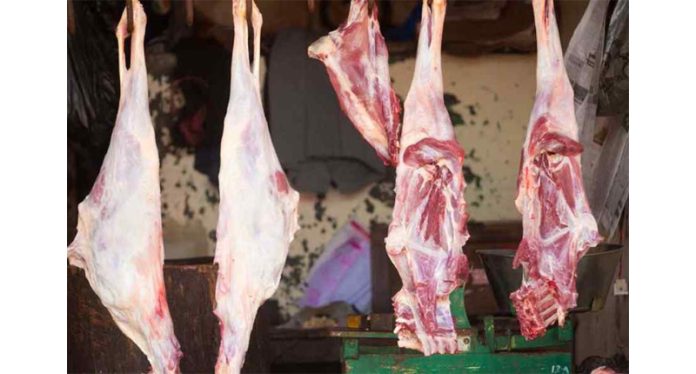NEW DELHI, Mar 18:
The Centre has told the National Green Tribunal that there is no requirement to include slaughterhouses and meat processing units within the scope of the Environment Impact Assessment (EIA) Notification, 2006 as the existing guidelines and safeguards effectively regulate these entities from an environmental standpoint.
Last year, animal rights activist Gauri Maulekhi approached the green tribunal, asking for the inclusion of slaughterhouses and meat processing units under the EIA, 2006.
She raised concerns regarding excessive water consumption at slaughterhouses, improper solid waste disposal leading to water contamination, and the risk of zoonotic diseases from unhealthy carcasses.
The Union Environment Ministry recently submitted an affidavit to the NGT, based on a report from an eight-member working group set up in August last year.
“Requisite guidelines/safeguards are already in place to regulate the slaughterhouses/ processing units from an environmental perspective, and there is no requirement for bringing slaughterhouses and meat processing units under the ambit of EIA, 2006,” the ministry said.
The EIA serves as a tool to assess the probable environmental impact of proposed projects or developments, considering socioeconomic, cultural, and human-health factors before decision-making.
According to the ministry, the existing regulatory framework and monitoring by agencies such as district magistrates, pollution control boards, the Food Safety and Standards Authority of India (FSSAI), and the Agricultural and Processed Food Products Export Development (APEDA) is adequate to address the environmental issues related to slaughterhouses and meat processing units.
“There will be no significant value addition by bringing such units under the ambit of EIA, 2006 as only the issue is the implementation of the regulations already in place,” the ministry said.
It said the contentions of the petitioner (Maulekhi) are mainly due to the unorganised slaughterhouses and meat processing units and that the working group has suggested prioritising their modernization.
The ministry’s working group report said illegal slaughterhouses with a capacity of up to nine animals are causing “significant damage to the environment” and require more efficient regulation and monitoring.
The report recommended that the Central Pollution Control Board (CPCB) communicate with state-level monitoring committees to crack down on illegal slaughterhouse units with the support of local administrations and promote their transition into the organized sector.
“Converting all unorganized slaughterhouses into modern abattoir would certainly improve the surrounding environment. Hence, all unorganized slaughterhouses must be first of all made ‘zero waste emitting’ industries,” it said.
“Necessary funding may be considered by the state or central government for expansion and modernization activities to control illegal slaughtering. Ramping up infrastructure, especially the waste management infrastructure, should be of utmost priority,” the working group recommended.
The FSSAI needs to intensify inspections and ensure that slaughterhouses get the license only when the food safety standards and pollution norms are complied with, it said. (PTI)
Trending Now
E-Paper


